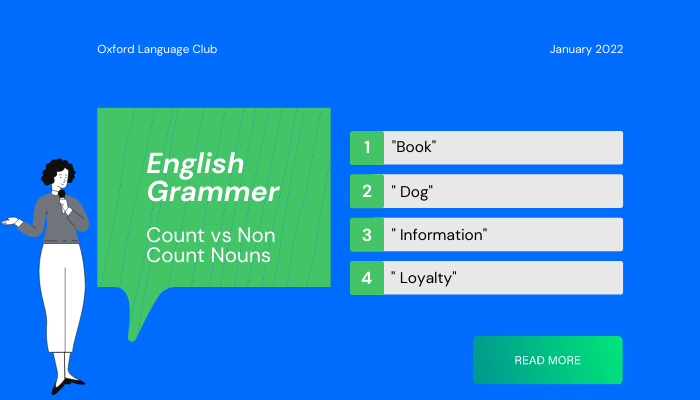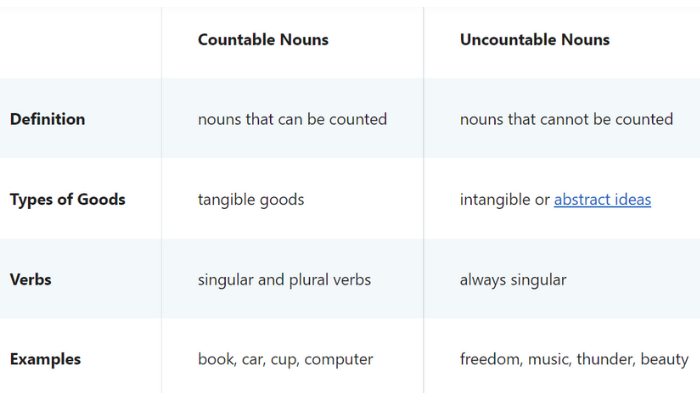Great site to keep my english skills updated for work and travel. I am really enjoying the lessons!
Maria C
 Argentina
Argentina


Countable nouns are items that can be counted like cookies or people. Conversely, uncountable nouns are things that can never be quantified or aren't normally quantified, like air or love. They're usually intangible or abstract ideas that we can't touch and count. Now that you have a basic idea of these two types of nouns, check out countable and uncountable nouns and example sentences using each.
What Are Countable and Uncountable Nouns?
Much like their names suggests, countable and uncountable nouns are ones you can and can't count. Here's a quick breakdown of these two types of nouns.

Now that you have a simple understanding of what a countable vs. uncountable noun is, it's time to check out these two types of nouns in more depth.
Countable Nouns
Also called count nouns, countable nouns are those tangible nouns you can hold and count one by one. For example, if you have 12 pennies, well, you could count those pennies. A few examples of countable nouns include:
How to Use Countable Nouns in a Sentence
Countable nouns have distinct singular and plural forms. If you have one cookie, it'll come in the singular form. If you have a dozen cookies, it'll come in the plural form. Additionally, these nouns can be preceded by a number or the determiners "a" or "an." They can also be paired with modifiers or quantifiers, like "many" or "fewer." Explore a few sentence examples using countable nouns.
Even if you're considering an extraordinarily high number, like all the books in the New York Public Library, books are still a countable noun because you could put a number on it.

Uncountable Nouns
With a clear understanding of countable nouns, it's time to take a peek at the nouns you can't count. Uncountable nouns include abstract ideas, things made of small parts like rice, liquids and even some foods. Examples of different uncountable nouns include:
How to Use Uncountable Nouns in a Sentence
Uncountable nouns typically only have a singular form. If you have some water in your glass, it'll come in the singular form (even though there are several ounces of it). These nouns will never be preceded by the determiners "a" or "an." Rather, they're paired with an array of modifiers like "some," "a lot of" or "much." See a few examples of how an uncountable noun is used in a sentence.
Since uncountable nouns are always singular, make sure you use a singular verb. So, you wouldn't write, "Knowledge are necessary to live a happy life." Knowledge can't be counted like marbles in a jar, so it's an uncountable noun. Therefore, the verb needs to be singular as in, "Knowledge is necessary to live a happy life."
Controlla il tuo punteggio - Prova il nostro quiz inglese gratuito + Ottieni un bonus gratuito